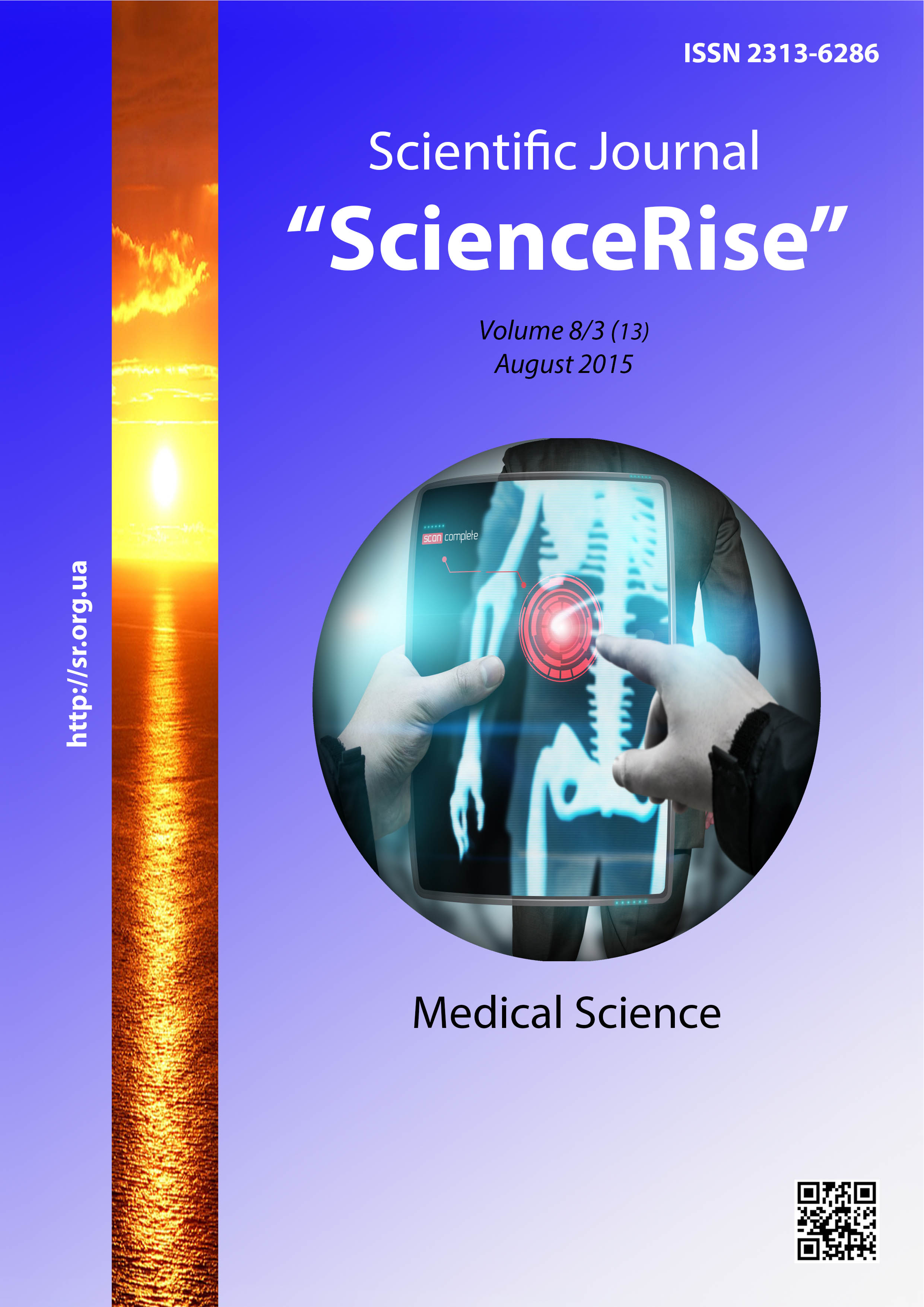Relationship of coping and patterns of dependent behavior in patients with chronic pancreatitis of biliary and alcoholic etiology in aspect of differentiation of its medical and psychological support
DOI:
https://doi.org/10.15587/2313-8416.2015.48007Keywords:
alcoholic chronic pancreatitis, biliary chronic pancreatitis, coping, addiction, medical and psychological helpAbstract
Choric pancreatitis is an actual medical and psychological problem in Ukraine. The aim of the work was to study the features of coping in patients with chronic pancreatitis of alcoholic and biliary etiology.
Methods. For detecting coping-mechanisms the standard method WCQ Р of Lazarus was used. The study of addictive tendencies was carried out with the help of questionnaire AUDIT and UDIT-tests oriented on patterns of dependent behavior.
Results. The study of features of coping-mechanisms and an addiction to dependent behavior in patients with chronic pancreatitis revealed intergroup and intragroup differences. Confrontation and low levels of self-control, responsibility and positive assessment were intrinsic for respondents with alcoholic etiology of pancreatitis. Women demonstrated the high addiction to the search of social support, men – to distancing. As to an addictive behavior there was revealed that the typical common tendencies were the consumption of coffee, alcohol, internet-dependence, the specific ones for women – TV, shopping-dependencies, for men – workaholism in patients with biliary and computer-addiction in patients with alcoholic chronic pancreatitis. Intergroup differences were demonstrated by an addiction to disorder of food behavior in patients with biliary and consumption of alcohol and smoking in respondents with alcoholic etiology of pancreatitis.
Conclusions. The revealed differences in coping-strategies of patients with different nosological forms of chronic pancreatitis give important information for detecting the targets of medical and psychological influence and constructing of differentiated program of medical and psychological help to patients of this type
References
Korotkevich, O. I. (2009). Chronic pancreatitis: from pathogenesis to therapy. Russian medical journal, 19. Available at: http://www.rmj.ru/articles_6765.htm
Halloran, C. (2009). Chronic pancreatitis. Internal Medicine, 4 (16), 44–47.
Kharchenko, N. V., Anokhin, G. A., Korulya, I. A. et al. (2011). Modern approaches for nutrition for patients with chronic pancreatitis. Health of Ukraine, 4 (22), 17–18.
Balliet, W. E., Edwards-Hampton, S., Borckardt, J. J., Morgan, K., Adams, D., Owczarski, S. et. al. (2012). Depressive Symptoms, Pain, and Quality of Life among Patients with Nonalcohol-Related Chronic Pancreatitis. Pain Research and Treatment, 2012, 1–5. doi: 10.1155/2012/978646
Harypova, A., Yuldashev, V. L., Zarudnuy. F. A. et al. (2011). Various types borderline somatic disorders in patients with chronic pancreatitis and their correction. Journal of SUNU, 7, 109–112.
Romanova, M., Kharkova, D. N. (2006). Some aspects of identifying borderline mental health disorders in patients with chronic pancreatitis. Russian journal of gastroenterology, hepatology, coloproctology, 16 (15), 460.
Krukova, T. L., Kuftyak, E. V. (2007). Questionnaire of coping (adaptation of WCQ). Journal Virtually psychologist, 3, 93–112.
Saunders, J. B., Aasland, O. G., Babor, T. F., De La Fuente, J. R., Grant, M. (1993). Development of the Alcohol Use Disorders Identification Test (AUDIT): WHO Collaborative Project on Early Detection of Persons with Harmful Alcohol Consumption-II. Addiction, 88 (6), 791–804. doi: 10.1111/j.1360-0443.1993.tb02093.x
Lynskiy, I. V., Minko, A. I., Artemchuk, A. F. et al. (2009). The system of AUDIT-like test for integrated assessment of addictive status of the individual. News of Ukrainian psychiatry. Available at: http://www.psychiatry.ua/articles/paper313.htm
Downloads
Published
Issue
Section
License
Copyright (c) 2015 Марианна Владиславовна Маркова, Наталія Валеріївна Кутова

This work is licensed under a Creative Commons Attribution 4.0 International License.
Our journal abides by the Creative Commons CC BY copyright rights and permissions for open access journals.
Authors, who are published in this journal, agree to the following conditions:
1. The authors reserve the right to authorship of the work and pass the first publication right of this work to the journal under the terms of a Creative Commons CC BY, which allows others to freely distribute the published research with the obligatory reference to the authors of the original work and the first publication of the work in this journal.
2. The authors have the right to conclude separate supplement agreements that relate to non-exclusive work distribution in the form in which it has been published by the journal (for example, to upload the work to the online storage of the journal or publish it as part of a monograph), provided that the reference to the first publication of the work in this journal is included.

